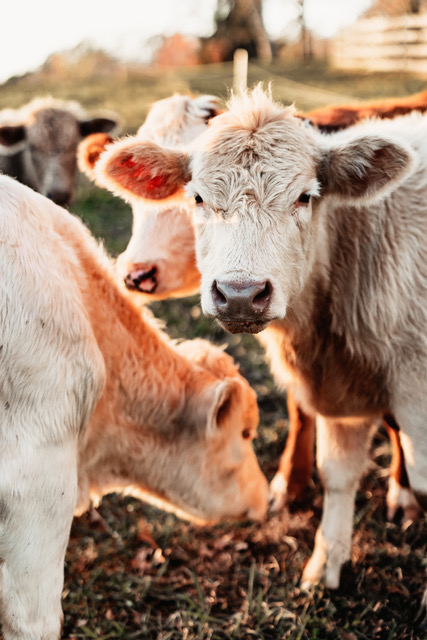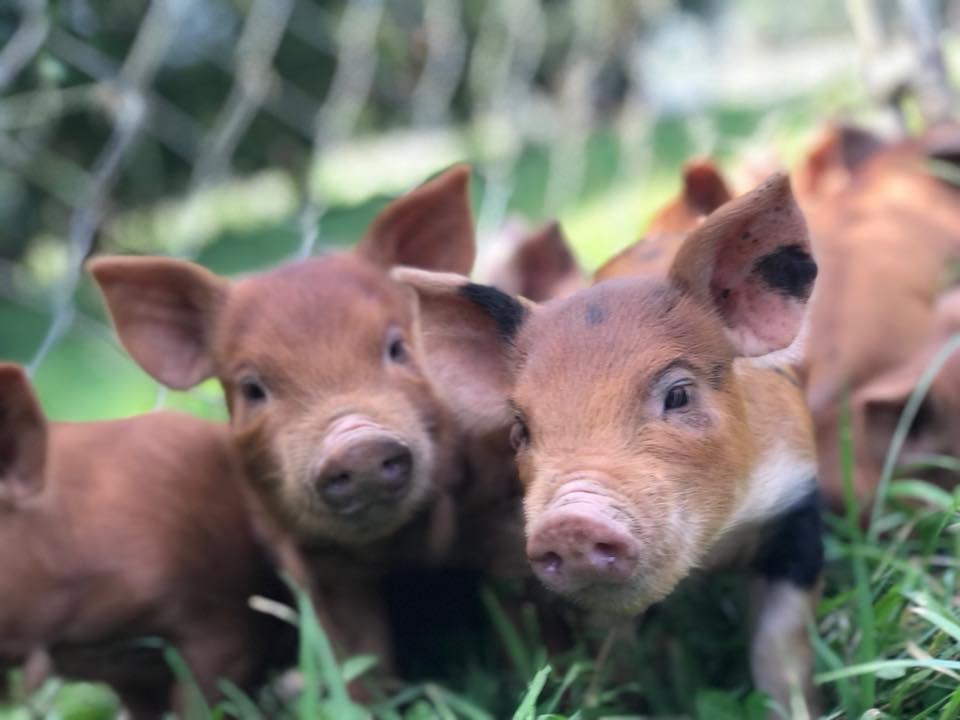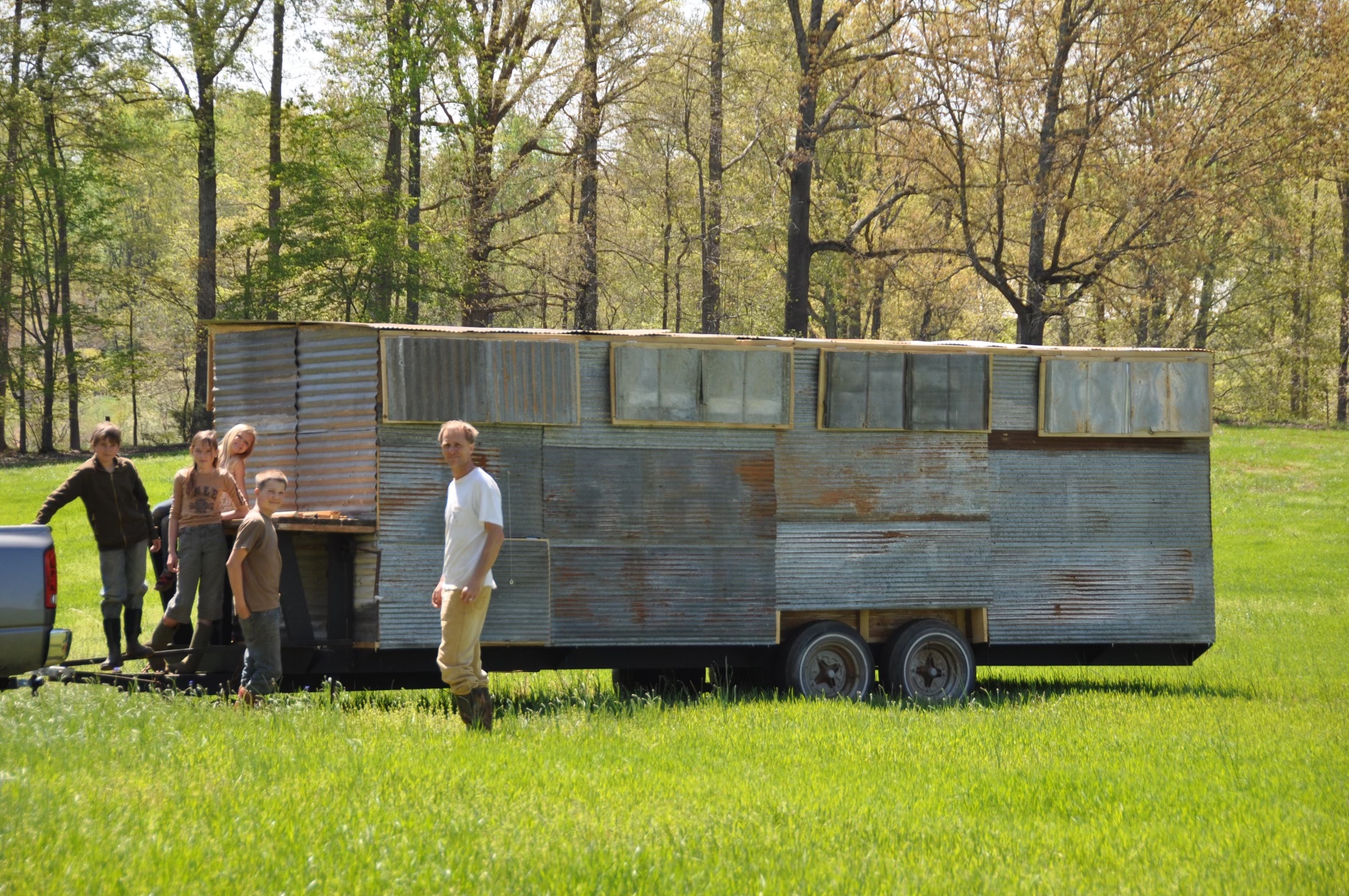
Farm History & Philosophy


We are Mark & Dana Nicholson, and we can’t go back. During ten years on the Tibetan Plateau, we adapted to the down-to-earth of lifestyle of Nomads. We lived in a remote county at over 11,000 feet with well-below zero temperatures where we heated our home with yak dung, stuffed in small stoves. Our four children slept on concrete beds warmed from underneath by radiating coals. They freely roamed the grasslands and mountainsides with Tibetan schoolmates. Given the extreme physical, political, and spiritual climate, conditions were harsh but, in many ways, it was the life! After a decade on the Rooftop of the World we moved back to North Carolina, and now we try to see life from that higher altitude. Our priorities have narrowed to family togetherness, serving in community, keeping a quiet life of faith, and doing honest work that requires sweat of our brows. And, since we learned so much from the Tibetan herdsmen among whom we lived, we are in many ways replicating their livelihood on our own North Carolina grasslands – one hundred acres that we share with close friends who also have the desire to heal, rather than strip this precious land!

Most of the food we ate on the Tibetan Plateau was local, free-range, and organic by default. Living above the tree line, our diet had to be like every preceding generation of our Tibetan community— quite carnivorous. The meat on our table came from yaks and sheep that grazed native grasses. And we noticed the difference in our physical health! More protein meant higher energy, more mood stability, and stronger immune systems.
We admired our nomad friends’ attention to the land their herds were grazing and became conscious of something we had remotely valued but had not earlier distinguished. We want to be good stewards of the earth, creatures herein, and the bodies God has given us. It is a high calling for all mankind as declared in Genesis. Caring for land and livestock, offering clean food, and educating our community in the process has become our family’s mission.



Caring for land and livestock, offering clean food, and educating our community in the process has become our family’s mission.

Integrity Food
If as people we value good health, it makes sense that we should find local meat sources where the animals are raised according to high standards and where their quality of life is protected.
What do you see when you imagine mass production poultry houses and huge feedlots of cattle? NOMAD Farms is the antithesis of all that. Cows eat grass. Chickens peck for bugs and fresh salad. Pigs root and wallow. These creatures are nomads! At NOMAD Farms, we let animals do what they were designed to do. Our livestock and poultry are raised on pasture according to ethical animal welfare standards. And the difference shows up not only in great taste but in your family’s long-term health. We want to provide access to clean, fresh, local food. It requires hard work and we are committed to it.
We envision growing relationships with people who care deeply about food integrity. To this end, we have an open-door policy. Come pick up the baby chicks and play on the farm. Poke around and see how we do things. Spend a Saturday volunteering in the fields and getting dirt under your fingernails. Enroll your kids in a session of summer farm camp. You are invited!
Don't put that in your mouth,
you don't know where it's been!
It’s easy to fish plastic bags of frozen chicken out of the discount bin at the big box retailer. It’s cheap—in the short run. But where did it come from? In what conditions were the birds raised? What assurances do the labels “free range” and “organic” actually carry? Is it really okay to eat just because the USDA approved it? Are government agencies that intrinsically trustworthy?
A lot of people don’t ask questions about the food they eat because subconsciously they may not want to act on the answers. But you can be a part of changing that. The more people connect to local farms, the more restaurants and markets carry fresh local products, the more government restrictions on local food access will be relaxed. Grocery store animals eat cheap grain (junk food), live in confinement with constant high stress, are addicted to antibiotics and vaccines to support their systems due to genetic manipulation, and live in crowded, toxic conditions where they don’t walk around and see the light of day.
How different would it be to know your farmer, to do business with him on a handshake, and to know that you can trust his operation? Wouldn’t you rather walk through the fields on a local farm and know that the meat you buy was raised on the forage beneath your feet?



